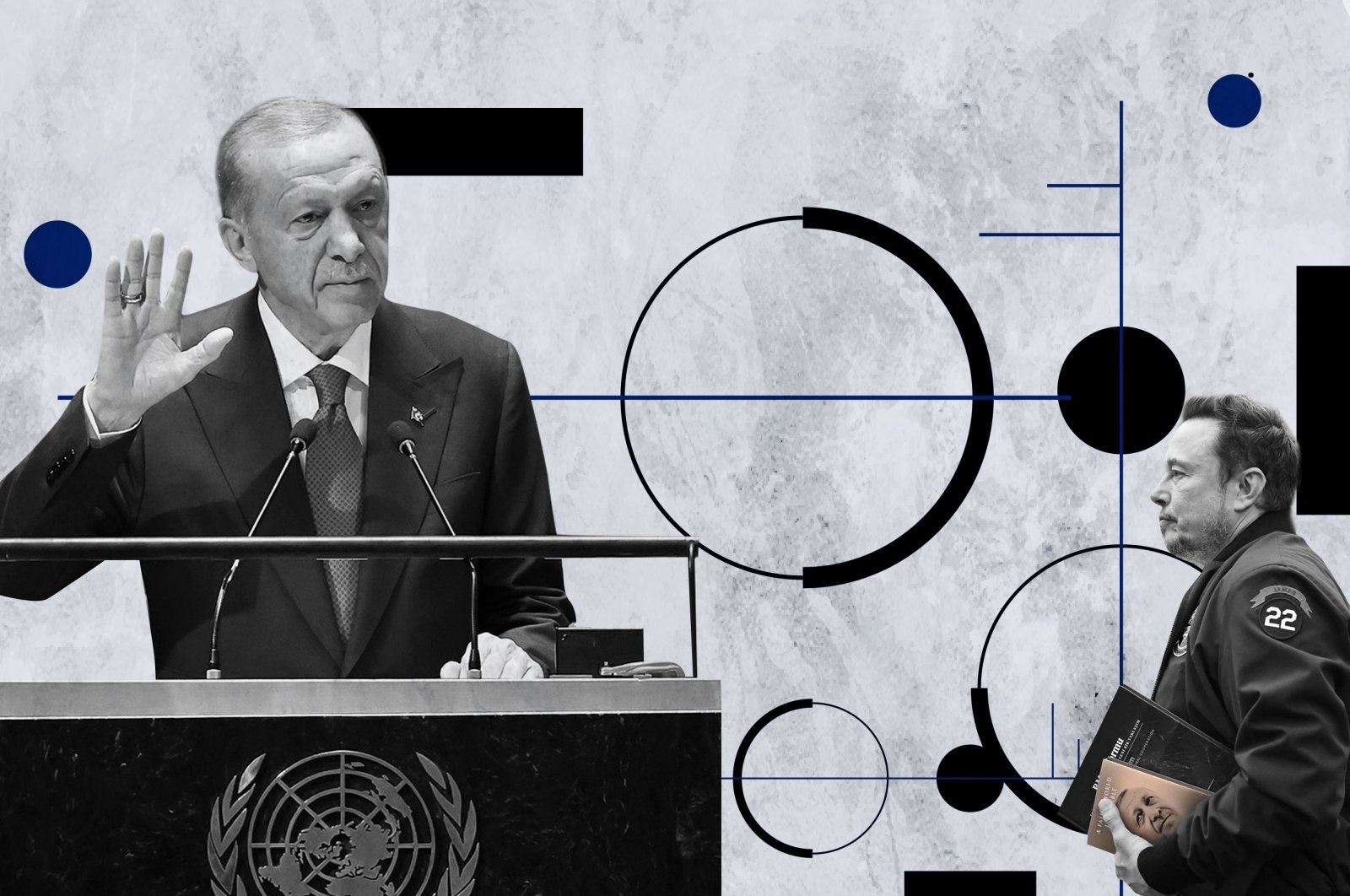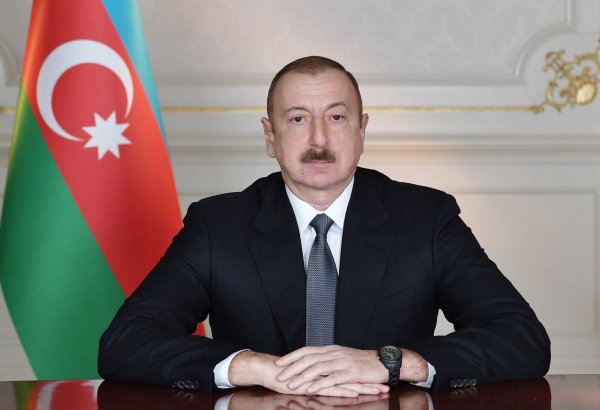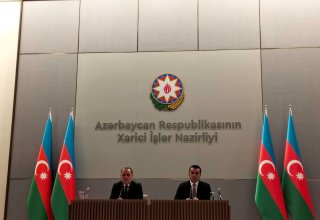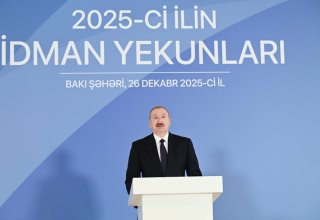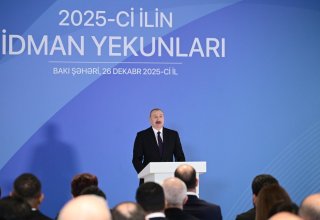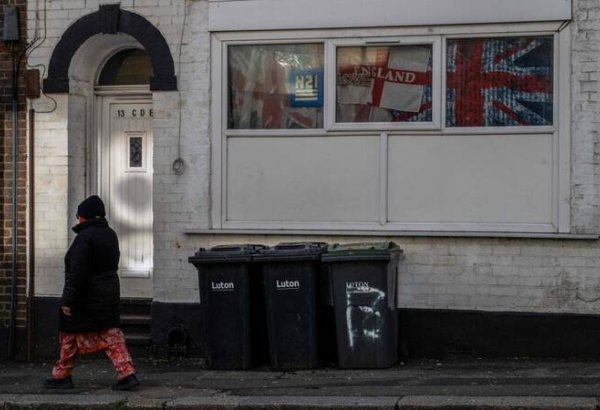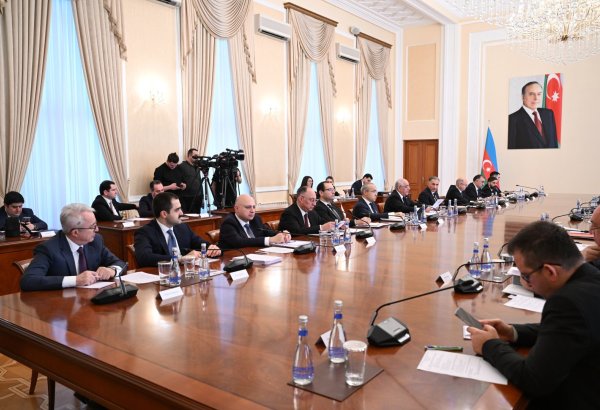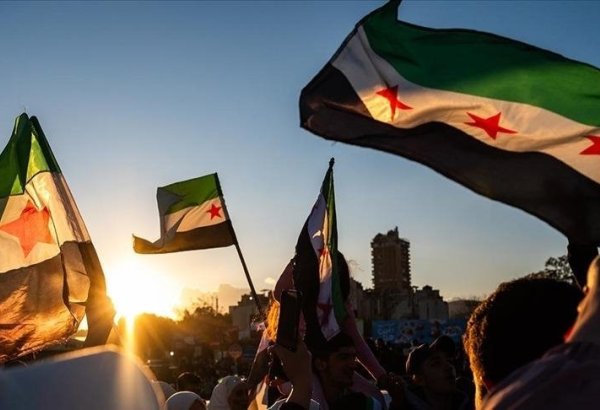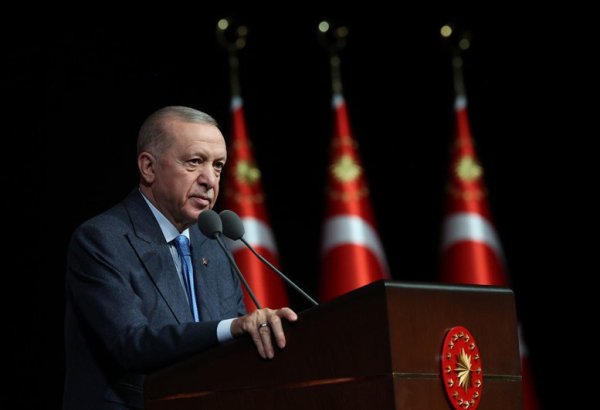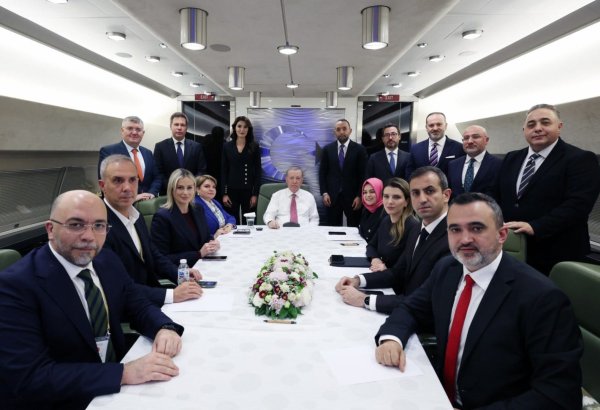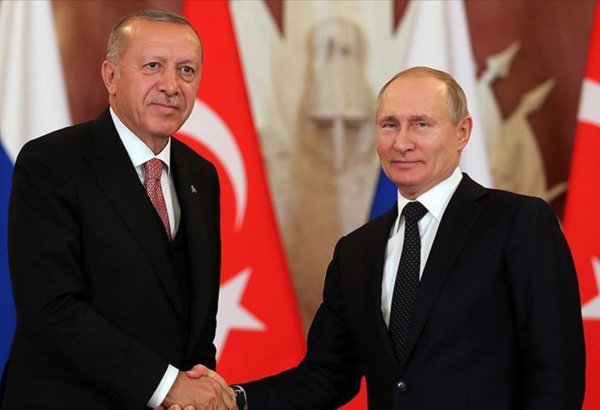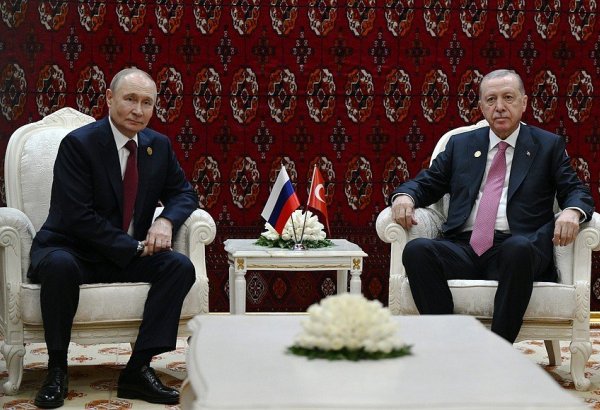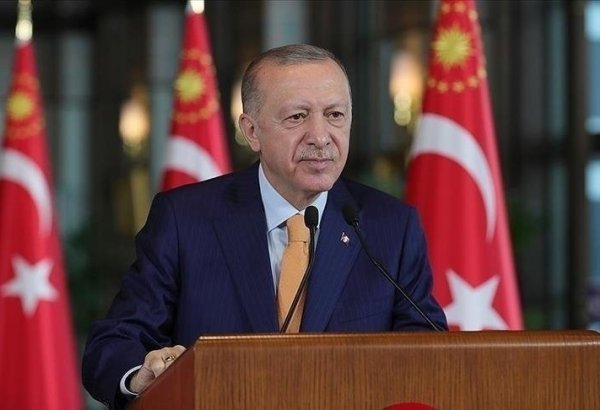Baku. TurkicWorld:
An illustration of President Recep Tayyip Erdoğan (L) addressing the 78th United Nations General Assembly at U.N. headquarters, and Elon Musk (R) holding the book "A Fairer World is Possible," originally titled "Daha Adil Bir Dünya Mümkün" in Turkish and published by Turkuvaz Kitap. (Illustration by Büşra Öztürk)
Reforming the U.N. is crucial to addressing global issues like conflicts in Syria and Ukraine, food security and climate change, as failing to adapt to current challenges will impact future generations
In the heart of New York City, Elon Musk, one of the world's most talked-about figures, on Sunday made a visit to Türkevi, or the Turkish House, a 561-foot-high, 36-floor skyscraper located just steps from the United Nations headquarters, situated beside the East River between 42nd and 48th Streets. Accompanied by his son X, Musk met President Recep Tayyip Erdoğan to explore the potential for investments in Türkiye and technological collaboration. As Musk left the building, he was seen holding a book with Erdoğan's portrait on the cover, reportsTurkicWorld with the reference to Daily Sabah.
What is the significance of this book, and what message does it carry?
On Jan. 29, 2009, the world witnessed a remarkable moment in global political history, commonly referred to as the “One Minute” incident. Then-Prime Minister and now President Erdoğan, during a Davos forum, repeatedly interrupted the moderator, Washington Post columnist David Ignatius, with the words, "One minute... One minute... One minute," as he demanded the opportunity to respond to the late Israeli President Shimon Peres.
This bold act marked a strong protest against Israeli aggression, injustice and attacks on Palestinians in Gaza, symbolizing a challenge to an international system that often failed to hold aggressors accountable for even the most basic violations of human rights.
Similarly, the slogan “The world is bigger than five,” a motto Erdoğan voiced first in 2013, has also become a famous moment that stands against the unjust structure of the international system, namely how the United Nations and the United Nations Security Council (UNSC) has been formed, and how it only serves the game and sole interests of those who are “stronger.”
Erdoğan has repeatedly voiced the same motto “bigger than five,” referring to the five permanent members (P5) of the UNSC, during his speeches at the United Nations General Assembly (UNGA) or other international platforms.
During the 78th session of the UNGA on Tuesday, Erdoğan once again criticized the status quo and the inefficiencies of the existing global governance and the U.N. itself. He addressed a wide range of global conflicts and issues, from Syria to Palestine, from developments in Niger to the Ukraine-Russia war, from the U.N.'s impartial stance on the Cyprus issue to the tensions in the Balkans and the South Caucasus, from global resource inequality to climate change. However, a fundamental question remains: Can multilateral institutions effectively address these global challenges, or is the current global governance system falling short?
This is precisely where the book "A Fairer World is Possible," originally titled "Daha Adil Bir Dünya Mümkün" in Turkish and published by Turkuvaz Kitap, which Musk was seen holding, enters the picture.
The book, also translated into Arabic and French, proposes a vision for a reformed international order capable of addressing contemporary global challenges.
'World is bigger than 5'
"Global governance is stuck in time. Look no further than the United Nations Security Council and the Bretton Woods system. They reflect the political and economic realities of 1945," said Antonio Guterres, the U.N. secretary-general, during the world's biggest diplomatic gathering.
"The world has changed. Our institutions have not. We cannot effectively address problems as they are if institutions don't reflect the world as it is,” Guterres said in his critique of the U.N., and added, “The alternative to reform is further fragmentation. It's reform or rupture.”
Erdoğan has been echoing this sentiment with his motto, "The world is bigger than five" as elaborated in the book.
The book comprises two main sections, along with an introduction and conclusion. The first section delves into global political dilemmas, injustices, double standards and global governance, addressing contemporary crises such as migration, terrorism and Islamophobia. It also critiques the functionality, effectiveness and governance of the U.N. as an international body, raising questions about its ability to represent all member states.
Building upon the issues explored in the first section, the second part of the book outlines a vision for resolving these challenges through a reformed U.N. structure. It proposes reforms to address the pressing needs of the modern world, particularly the elimination of the veto power held by the P5, an increase in the number of UNSC members to 20, selection of UNSC members from the UNGA, and the establishment of a rotational system. In this proposed structure, the UNGA would play a legislative role, while the UNSC would serve as the executive branch of the U.N.
Core argument of the book
The book's core argument is that only through such reforms can the U.N. effectively serve the interests of all its member states and not just the “powerful,” promote impartiality and respond promptly to international crises. It advocates for a just, representative, transparent, accountable and preventive structure.
Erdoğan emphasized this point during his recent UNGA speech, noting that a UNSC without a representative from the 2 billion-strong Muslim world or from Africa, a continent with a population of 1.2 billion, cannot truly represent the new world.
Global politics and the international system have undergone numerous structural changes, from the Westphalia Peace Agreement to the founding of the U.N., from the Sykes-Picot Agreement following World War I to the post-9/11 global order. Today, we find ourselves in a multipolar world where a Western-centric worldview is no longer sufficient.
One sentence encapsulates Erdoğan's proposal: “An understanding, that does not value people simply because they are human, cannot ensure global security and peace. In a world where consciences have become desert, it is not possible to prevent the desertification of the land. Firstly, we need to enrich our consciences with justice, respect for the other, peace, and compassion.”
This idea also resonated in Erdoğan's UNGA address, where he stated, "The U.N. Security Council is no longer a guarantor of world security but has become a battleground for the five permanent members."
Indeed, effective reform is needed. Whether addressing humanitarian or security concerns in Syria, the Israel-Palestine conflict, the Russian invasion of Ukraine, global food security through grain deals, the inequality and mismanagement of planetary resources, or decisive action on climate change and global warming, contemporary problems have a direct impact on people worldwide. Failure to reform global governance to meet the needs of today could result in even greater suffering for future generations and our planet, alongside the enduring problems of the past and present.
Needless to say, Erdoğan’s vision of reform is not merely political idealism; it represents a pragmatic approach that addresses real-world politics, global issues and a proposal for meeting the demands of today's interconnected world through collective global agreements and the strengthening of international political bodies like the United Nations.








